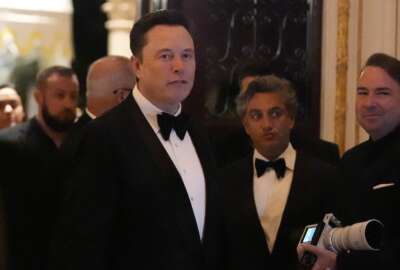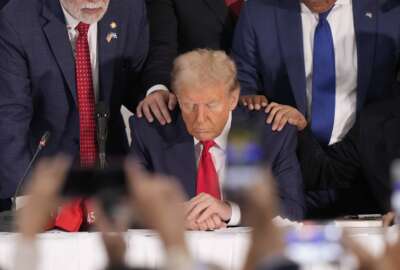DOGE plan: Audacious, but what about agencies like TSA?
DOGE crew wants to drastically cut government. Cutting the employees and agencies doing some work will just go to contractors with less accountability.
You couldn’t make up this story. She was sworn in as a civil aviation security specialist on September 10, 2001. Today she oversees domestic air operations at the Transportation Security Administration.
Michal (pronounced like Michael) Rottman is also executive of the year in the annual awards of the Senior Executives Association. She emphasized a theme of taking care of employees so they can help improve service to a public that mostly finds passenger screening annoying. It makes you wonder how DOGE, the (not a) Department of Government Efficiency, will deal with people like Rottman and agencies like TSA.
DOGE designees Vivek Ramaswamy and Elon Musk state they will drastically downsize the government in part by going after regulations, and thereby the people who write and enforce them. Aviation and the work of people like Rottman provides a great set of questions.
Careful readers know I’m an aviation buff. The aviation enterprise is a nearly miraculous amalgam of the highest human endeavors in science, engineering and systems management. The complex includes the vast and complicated network of people who work on the ground, doing everything from passenger screening to making sure planes don’t ram one another aloft or on the ground. It requires multiple agencies in multiple departments.
Getting back to Rottman, imagine taking a job in aviation security, and your second day at work is 9/11 — the 9/11. This “black swan” event brought in the heretofore unthinkable idea of mass suicide/murder using air travel. Metal screening had been established for decades before 9/11, a response to pistol-assisted hijackings of the late 1960s and early 1970s.
Today’s TSA exemplifies that over which the coming battle for the soul of government is all about. In response to the attacks, the government permanently reorganized. Congress enacted legislation creating the Department of Homeland Security. The Aviation and Transportation Security Act, passed just a month after 9/11, established the Transportation Security Administration. It wasn’t “unelected bureaucrats” who made TSA.
Now, Congress did not specify how big a bottle of sunscreen you can bring on board. It didn’t specify the color and cut of Transportation Security Officer uniforms. It didn’t dictate the constantly evolving technologies TSA uses to carry out its screening mission. Those unelected bureaucrats figure out details about how things should operate.
Flawed and often rough though it is, the system of broad delegation of detail — of specific regulation — by Congress to agency staff has basically worked. When the Supreme Court overturned the idea of Congressional deference to agency staff, it altered but didn’t totally toss it out. I doubt the Justices would expect Congress to pass a law on the size of sunscreen bottles allowed to fly. But neither could an administration dissolve TSA.
You could argue, well why not have the private sector, the airlines, do screening? That’s certainly an option. With a TSA, at least there you get more or less universal standards for how screening should operate. In theory, anyhow, TSA is far more accountable to the public than, say, Qatar Airways.
Outside of the U.S., countries have contractors operate air traffic control systems. If Vivek and Elon want to close the FAA’s ATC organization, the government would be forced to contract out the work. Members of Congress have actually suggested that at times.
Can the nation do without the work of air traffic control or passenger screening? If not, then who should do it? The DOGErs want wholesale reduction, not incremental improvements in how the government as it stands does things. But what should the government not do in the first place? DOGE hasn’t said. In fact, its most detailed information came in a Wall Street Journal op-ed piece that everyone else is quoting.
Love or hate it, the DOGE plans follow what has become standard political operating procedure. The widely reported aims of DOGE represent an audacious opening bid, not a set of realistic expectations. Demand the solar system, and settle for a couple big planets.
Copyright © 2024 Federal News Network. All rights reserved. This website is not intended for users located within the European Economic Area.
Tom Temin is host of the Federal Drive and has been providing insight on federal technology and management issues for more than 30 years.
Follow @tteminWFED







